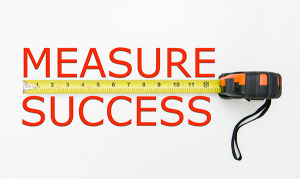
By J. SHANNON NEIBERGS – Director, Western Extension Risk Management Education Center
As America’s farm and ranch families’ toil under the burden of decreasing prices, rising costs of production, increasing levels of debt and diminished working capital, risk management education will play a significant role in mitigating these risks.
Extension Risk Management Education has consistently helped farm and ranch families to navigate through the complex arena of risk to achieve improved sustainability. Our long run goal of slowing the decrease of farming operations leaving agriculture improves diversity and supports the economic viability of rural communities. While crop insurance and government programs help alleviate financial risk, increased levels of agricultural risk management education will be necessary to help producers strengthen their financial position so that they may be able to overcome external economic pressures.
Agriculture is an important sector of the U.S. economy. It is in the public interest to have a financially stable agricultural sector that produces the nation’s safe and affordable food and fiber supply and supports rural economies. The magnitude of risk faced by farmers and ranchers in the current economic, political and cultural environment has never been greater; especially as agricultural policy has switched from price supports to the importance of managing risk.
Extension Risk Management Education (ERME) has partnered with a diverse network of Extension professionals, community based organizations, nonprofits and other entities in the public and private sector to deliver risk management education and training since 2001 to farmers and ranchers nationwide. This cadre of educator professionals have been instrumental to ERME’s mission and through their efforts have not only validated the need for risk management education with projects directly impacting farm families; but have demonstrated how education programs add depth and continuity to the farm safety net.
As agriculture risk evolves we must be diligent in our pursuit of enhanced opportunities for risk management education principles and practices which can be integrated within the framework of sustainability, land, water, food and climate. Expanding this portfolio to meet the challenges of the different types of risk encountered by farmers and ranchers will take on added importance. The four Regional ERME Centers recognize that these risks cannot be managed solely with government programs and will engage with their partners to both enhance and expand the farm safety net with education and other innovative approaches to mitigate current and emerging risks.
In future issues we will explore the wide variety of agricultural risks that have been characterized as Production, Marketing, Financial, Legal and Human risks (Crane etal. 2013); why risk management education is critical for managing risk and how the ERME program will continue to strengthen farm and ranch preparedness by helping producers manage their risks collectively and simultaneously. We will also highlight best practices in risk management education and how it has directly impacted farm and ranch families; as well as innovative delivery methods and approaches that are in step with technology and the social, economic and environmental conditions of our diverse audience of producers.
More from Winter 2017 Newsletter
 Program Evaluation
Program Evaluation
Program evaluation is essential to the success of the Extension Risk Management Education (ERME) program.
Essential program evaluation »
 Managing Financial Risks South Central Utah
Managing Financial Risks South Central Utah
This project addressed the financial and production risks of beginning and progressing farmers and ranchers in south central Utah.
Managing risks for farmers & ranchers »
